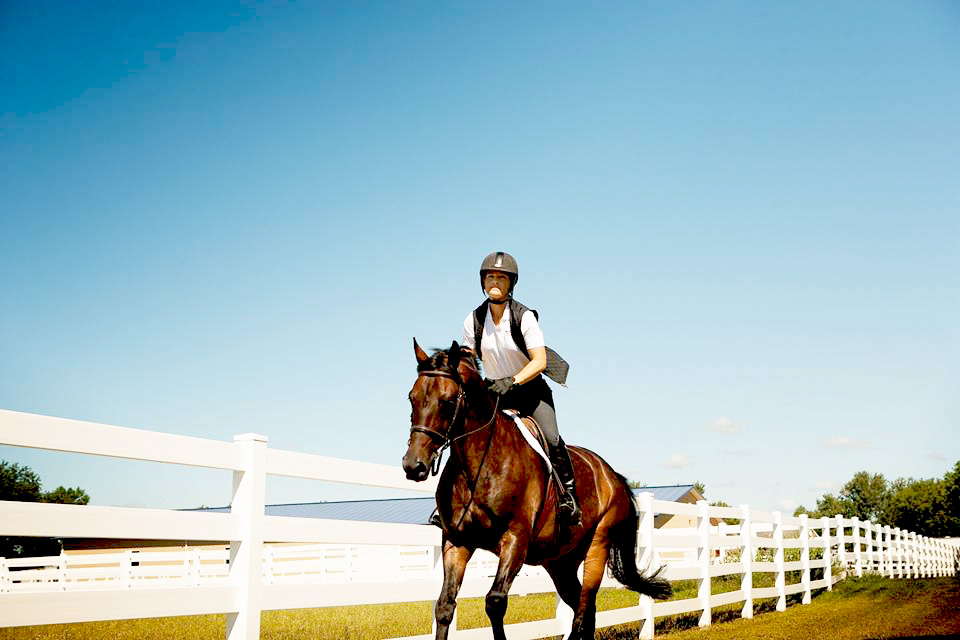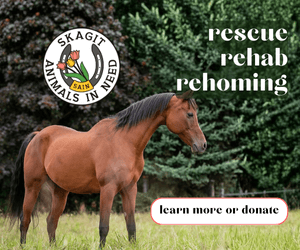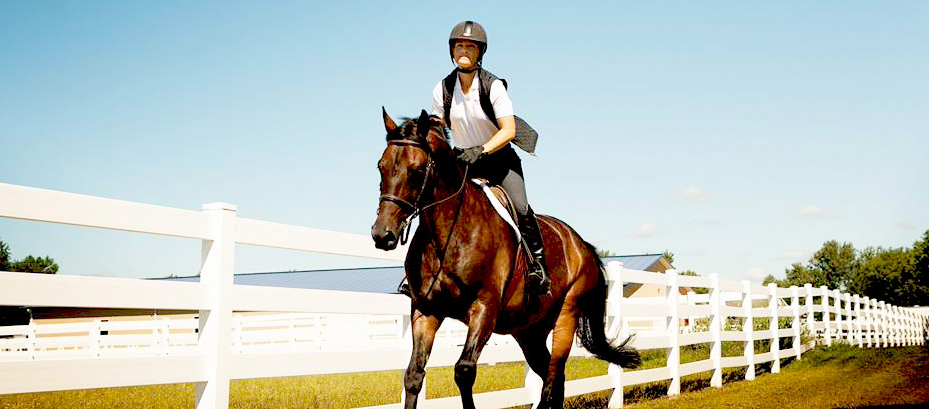Keep Your Horse Safe and Competitive all Summer Long
by Purina Animal Nutrition

Heat and humidity place an added burden on horses during training, showing and transporting. Summer is coming to a close but many are still busy finishing up the show season and it’s important to make sure your horse is not becoming overheated, stays sufficiently hydrated and remains comfortable in high temperatures.
“Horses are better equipped to work in cold weather than in the heat,” said Katie Young, Ph.D., equine nutritionist and manager equine technical services, Purina Animal Nutrition. “They build up a tremendous amount of body heat as a result of fiber digestion and muscle exertion, plus insulation from their hair coats and body fat. Hot, humid weather can make heat dissipation extremely difficult.”
Dr. Young and Dr. Karen Davison, equine nutritionist and sales support manager, share these tips for horse owners to help ensure a safe, healthy show season.
- Head off heat stress. A horse’s main cooling mechanism is evaporation of sweat from the skin surface. Increased humidity reduces this evaporation, decreasing the horse’s ability to cool down. Under extreme heat, especially with high humidity, the body’s cooling mechanisms may not work well enough to dissipate the heat generated. This can lead to heat stress, which is hard on the body and can impair performance. A simple calculation can help you determine your horse’s risk level for heat stress. Take the ambient temperature (degrees Fahrenheit), add the relative humidity (%) and subtract the wind speed (mph). So, if the ambient temperature is 98° F with a 55% relative humidity and wind speed of 5 mph: 98 + 55 – 5 = 148. Here’s what the answers mean:
- 130 or less: The horse’s own cooling mechanisms will work effectively.
- 140 to 170: The horse has partial cooling capacity and may need some assistance cooling down.
- Higher than 180: The horse is at high risk for heat stress or even heat stroke.
- Don’t hesitate to hydrate. Sweat generated during work robs the body of large amounts of fluids and important nutrients that must be replenished. So, it’s very important to provide adequate clean water to help horses stay hydrated. In some situations, such as travel, it can be hard to persuade your horse to drink enough water. Compressed hay blocks soaked in water can be very helpful in these situations. A 2-lb. Purina® Hydration Hay® Horse Hay Block will absorb 10 lbs. or approximately 5 quarts of water, providing your horse both water and hay. Often, a horse will eat a hay block with water even when he turns up his nose at a bucket of water.
- Amp up electrolytes. Electrolytes are electrically charged mineral salts that play a major role in water balance, and are integral to nerve and muscle function. An electrolyte imbalance can lead to heart problems, digestive dysfunction, muscle cramps and nervousness. The primary electrolytes lost in a horse’s sweat are sodium, potassium and chloride. Horses working at light to moderate levels will receive adequate electrolytes from a nutritionally balanced feed, good quality hay, and a salt block or a couple of ounces of loose salt each day. Even if these horses are sweating a bit, a good diet (including free choice or top-dressed salt) along with plenty of clean water is usually adequate to replenish the electrolytes lost in sweat. However, if your horse works very hard in hot, humid climates and sweats a great deal, he will most likely need additional electrolyte supplementation.
- Evaluate the environment. Pay attention to environmental conditions and try to avoid working your horse when the risk of heat stress is high. Be sure to provide adequate water for hydration and electrolytes to replenish sweat loss. Work in the shade, switch on some fans and use cold water to wash down your hot horse.
Summer is a great time to enjoy and bond with your horse, just remember to help him beat the heat by giving him the care and attention he deserves.
About Purina Animal Nutrition
Purina Animal Nutrition LLC (www.purinamills.com) is a national organization serving producers, animal owners and their families through more than 4,700 local cooperatives, independent dealers and other large retailers throughout the United States. Driven by an uncompromising commitment to animal excellence, Purina Animal Nutrition is an industry-leading innovator offering a valued portfolio of complete feeds, supplements, premixes, ingredients and specialty technologies for the livestock and lifestyle animal markets.
Published in September 2015 Issue

The Northwest Horse Source is an independently owned and operated print and online magazine for horse owners and enthusiasts of all breeds and disciplines in the Pacific Northwest. Our contemporary editorial columns are predominantly written by experts in the region, covering the care, training, keeping and enjoyment of horses, with an eye to the specific concerns in our region.






